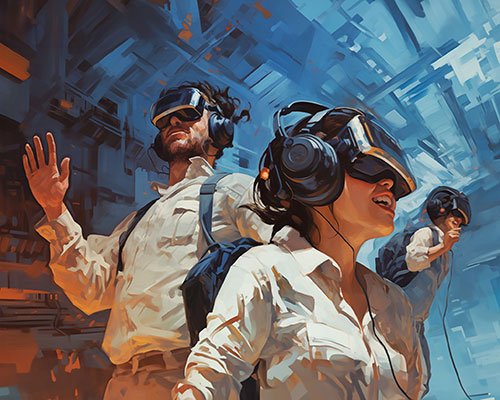Leveraging immersive solutions to cultivate safe, cost-effective, and productive training environments.

By Dave Dwyer, COO at Mass Virtual
Manufacturing facilities are inherently complex environments with demanding physical workloads and heavy machinery. Workers must possess the appropriate skills to navigate their routines efficiently and safely, minimizing the risk of injury. Even a small safety oversight can lead to major repercussions, impacting both the employee and the company.
Neglecting safety in manufacturing leads to over 800,000 workers facing non-fatal injuries and 18,000 suffering serious ones annually, requiring immediate action.
Organizations are embracing a new approach to training field workers, shifting beyond passive learning methods such as classroom instruction and textbooks. Virtual reality (VR) technology is transforming how workers learn and retain critical information. VR empowers manufacturing enterprises to enhance worker safety, boost knowledge retention, cultivate innovation, and minimize operational and training costs.
Relatively new to the scene, VR training is changing the landscape of learning across the enterprise. In an industry like manufacturing that has traditionally relied on legacy technologies, leaders have been hesitant to embrace new technologies due to concerns about cost and complexity. They worried that the high upfront investment and implementation time would be disruptive. However, modern VR software effectively addresses these concerns.
Integrating VR’s immersive experiences significantly enhances training effectiveness without disrupting critical equipment operations. For example, real-world training practices on factory floors can now happen in virtual environments, and companies don’t need to stop production lines in order to conduct training. Instead, both training and business operations happen simultaneously, contributing to business growth without adding extra costs.
In a highly competitive market, manufacturing leaders require strategies to optimize team speed, precision, and execution. VR is a powerful tool that transforms how skilled professionals work, train, and achieve bottom-line success.
VR’s real power lies in shaping the future of how manufacturing leaders build and sustain their workforce. By immersing trainees in detailed virtual simulations, VR helps workers perform tasks and enhance precision and focus. Studies show that workers trained in VR environments retain information 80% better, ultimately reducing production costs, propelling output, and securing a competitive edge.
VR technology empowers maintenance and manufacturing in several ways:
In today’s competitive landscape, manufacturers are actively seeking innovative approaches to enhance their competitive edge. VR offers advanced capabilities that enhance worker safety through realistic training environments, foster innovation through immersive experiences, and significantly reduce operational and training costs. These advantages provide companies with a strategic advantage in achieving their goals.
Equipped with features like remote collaboration for training, risk-free process refinement, immersive training for skill development, refresher training, and data-centric optimization for predictive maintenance, VR empowers organizations to unleash their full potential. VR propels them toward unparalleled safety standards, operational efficiency, and groundbreaking innovation. This equates to expedited training processes, optimized operations, and groundbreaking innovation – all positioning the company for the challenges of tomorrow.

David (Dave) Dwyer currently serves as the COO of Mass Virtual, where he supports the team in bringing transformative XR solutions to the masses. His previous experience includes spearheading large implementations at iQuate, with Fortune 500 customers such as American Express and ExxonMobil, before the company was successfully acquired and became CloudSphere. At CloudSphere, Dave navigated the acquisition landscape combining the back-end business systems. These experiences led him to Mass Virtual, where his passion and knowledge for streamlining routine tasks and implementing Robotic Process Automation (RPA) is paramount to the success of increasing the velocity of the business.
Scott Ellyson, CEO of East West Manufacturing, brings decades of global manufacturing and supply chain leadership to the conversation. In this episode, he shares practical insights on scaling operations, navigating complexity, and building resilient manufacturing networks in an increasingly connected world.